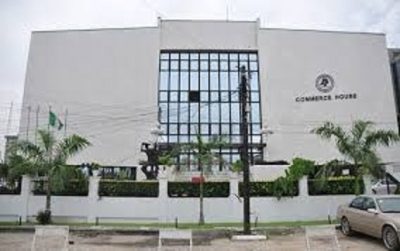The Lagos Chamber of Commerce and Industry (LCCI) has expressed concern over Nigeria’s worsening inflation and interest rates, despite a marginal drop in August’s headline inflation rate to 32.15%, down from 33.40% in July.
While this represents a month-on-month improvement, the year-on-year comparison reveals a troubling 6.35% increase compared to July 2023. The interest rate hike to 27.25% further exacerbates the tense business environment.
The LCCI acknowledges government efforts toward monetary easing but notes that the drop in inflation is insufficient to address deep-rooted challenges, particularly in food and core inflation categories.
Food inflation surged to 37.52% year-on-year, with core inflation reaching 27.58%, highlighting severe pressure on Nigerians’ purchasing power.
The Chamber criticizes the unresolved collaboration between the Nigerian National Petroleum Corporation Limited (NNPCL) and the Dangote Refinery, citing the Central Bank of Nigeria’s (CBN) excuse for raising the monetary policy rate as unsustainable.
The LCCI urges the government to tackle the issues surrounding petroleum pricing dynamics to benefit the Nigerian economy.
The LCCI identifies energy and transportation costs as significant contributors to core inflation.
To address this, the Chamber recommends accelerating energy reforms to improve electricity generation, reduce reliance on costly diesel and petrol, and ensure stable power supply for manufacturers and SMEs.
The Chamber noted that Investing in rail and road networks will ease transportation costs and reduce price volatility.
Furthermore, the LCCI calls for more transparent foreign exchange management to stabilize the Naira and moderate imported inflation.
The Chamber reiterates its earlier recommendation that the CBN should work with the Nigeria Customs Service to fix the import duty exchange rate for a certain period to aid business decisions on importation.
The LCCI advocates for a holistic approach to address inflation by boosting local production, stabilizing energy and transportation costs, and aligning monetary and fiscal policies.
The Chamber warns that high inflation and interest rates distort the economy, making business and investment planning challenging.
The unabated inflationary pressures exacerbate social and economic vulnerabilities, particularly for smallholder farmers and vulnerable groups is also a major concern for the LCCI.
The Chamber recommends targeted interventions, such as prioritizing smallholder farmers, promoting agricultural mechanization, and supporting local fertilizer production.
The LCCI emphasizes the need for strong collaboration between government agencies, research institutions, and farmer cooperatives.
The Chamber highlights the urgent need for sustained policy responses to address Nigeria’s inflation and interest rate challenges.
By adopting a holistic approach and implementing targeted interventions, the government can stabilize the economy, boost local production, and alleviate pressure on Nigerians’ purchasing power.
Dr. Chinyere Almona, Director General of the Lagos Chamber of Commerce and Industry, emphasized the need for swift action to address these economic challenges.
“The marginal decline in the August inflation rate is a welcome development, but the upward trend in year-on-year inflation highlights the need for sustained policy responses to keep the pressures down,” she said.
The LCCI’s statement serves as a call to action for policymakers to address the underlying issues driving inflation and interest rates, ensuring a more stable and prosperous economic environment for Nigeria.









Comment here